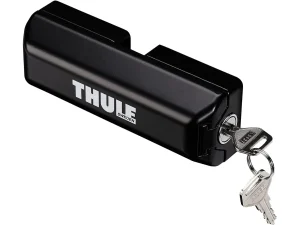Sustainable Van Living: Your Guide to an Eco-Friendly Life on the Road

So, you’re dreaming of the open road. The freedom, the vistas, the simplicity. But you also want to tread lightly on this beautiful planet you’re exploring. Good news: sustainable van living isn’t just possible; it’s a deeply rewarding way to travel. It’s about more than just solar panels—it’s a mindset. A commitment to reducing your footprint while expanding your horizons.
Let’s dive into how you can build a greener home on wheels, from big-ticket modifications to simple daily habits that make a world of difference.
Building a Green Foundation: The Big Three Modifications
Honestly, if you want to live off-grid sustainably, your energy, water, and insulation systems are where the magic happens. Nail these, and you’re 90% of the way there.
Harnessing the Sun: Solar Power Systems
This is the big one. A robust solar setup is the heart of an off-grid van. It powers your lights, fridge, fan, and lets you charge your devices without a whisper of guilt.
- Calculate Your Needs: Before you buy anything, add up your power consumption. How many watts does your fridge use per day? Your laptop? A 100-watt panel might sound impressive, but if you’re running an induction cooktop, you’ll be drained in minutes.
- Lithium (LiFePO4) Batteries: Yeah, they’re pricier upfront than lead-acid. But they’re a game-changer. They’re lighter, last way longer (thousands of cycles), and can be discharged almost completely without damage. They’re the undisputed champs for eco-friendly van conversions.
- Energy Efficiency is Key: The greenest energy is the energy you don’t use. Opt for LED lights everywhere. Choose a 12V compressor fridge over a residential one. Every watt you save is a watt you don’t have to generate and store.
Water Wisdom: From Collection to Conservation
Water is life. And on the road, it’s a precious commodity. Managing it sustainably is a huge part of the van life ethos.
- Greywater Management: Please, don’t just dump your soapy water on the ground. It’s bad for the environment and gives van lifers a bad name. Use a collapsible sink basin to collect water and dispose of it properly at designated dump stations or in public restroom sinks.
- Low-Flow Everything: A foot pump or pressure-activated tap for your sink will drastically reduce your water usage compared to a constant-flow electric pump. You become hyper-aware of every drop.
- Consider a Filter: A good water filter means you can safely refill your tanks from public sources more often, reducing your reliance on single-use plastic bottles. It’s a small mod with a massive impact.
Staying Cozy: Sustainable Insulation
Proper insulation means you’ll spend less energy heating and cooling your tiny space. It’s all about efficiency. While spray foam is effective, it’s not exactly green. Luckily, there are fantastic sustainable van build materials.
- Hemp Wool: A superstar in the green building world. It’s natural, biodegradable, has excellent thermal and acoustic properties, and even manages moisture.
- Recycled Denim: Yeah, made from old jeans. It’s a safe, effective, and recycled material that’s easy to work with (no itchy fibers!).
- Sheep’s Wool: A classic for a reason. It’s naturally moisture-regulating and fire-retardant. Just ensure it’s sourced from responsible suppliers.
The Daily Grind: Eco-Conscious Van Life Habits
The modifications get you set up, but your daily choices are what truly define your sustainable van life journey. This is where it gets personal.
Zero-Waste Kitchen on Wheels
Cooking in a van already has a smaller footprint than a traditional home, but you can amplify that.
- Ditch Single-Use Plastics: Store food in glass jars or stainless steel containers. Use beeswax wraps instead of plastic wrap. Carry a reusable water bottle, coffee cup, and shopping bags. You know the drill.
- Composting: It sounds tricky in a van, but it’s doable! Small, sealed compost bins with charcoal filters contain odors. You can then donate your compost to community gardens or drop it in a friend’s bin. Or, look into a compact electric composter if you have the power for it.
- Buy Local, Buy in Bulk: Support local farmers’ markets when you can. Not only is the food fresher, but it often has less packaging. And buying staples like rice, pasta, and oats from bulk bins using your own bags is a huge win.
Driving and Maintenance: Lowering Your Rolling Carbon Footprint
Let’s be real, a vehicle isn’t exactly emissions-free. But you can minimize its impact.
- Drive Less, Stay Longer: The beauty of van life is that your hotel comes with you. Instead of racing to the next destination, slow down. Stay in one beautiful spot for a week. Explore by bike or on foot. This saves fuel, money, and stress.
- Vehicle Maintenance: A well-tuned engine with properly inflated tires runs more efficiently. Simple, regular maintenance is one of the easiest ways to improve your gas mileage and reduce emissions.
- Mindful Route Planning: Combine errands to avoid unnecessary trips. Use apps to find the most fuel-efficient route, not necessarily the fastest one.
It’s a Mindset, Not a Perfect Metric
Here’s the deal: you won’t be perfectly zero-waste or carbon-neutral. And that’s okay. Sustainable van living is a direction, not a destination. It’s about being conscious. Making a better choice when you can. Sometimes that means choosing a plastic-wrapped loaf of bread because it’s all the general store has. That’s real life.
The goal isn’t to achieve some unattainable green ideal. It’s to wander wonderfully, all while leaving places just a little better than you found them. It’s about that quiet satisfaction that comes from knowing your cozy home is kind to its wild backyard.



